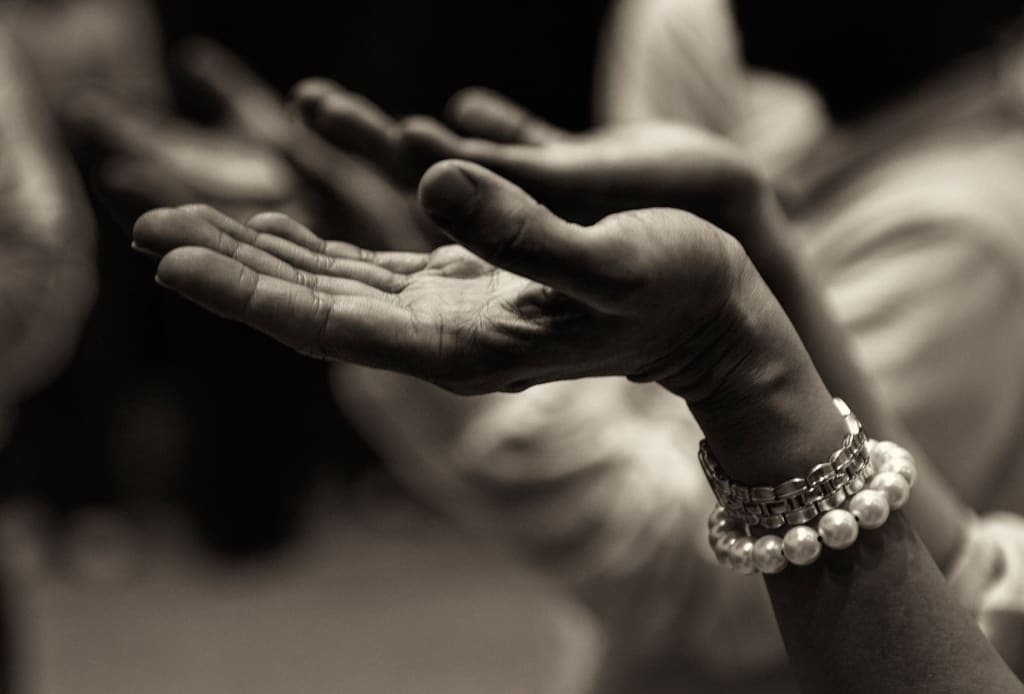Five Elements of Worship
Understanding the Essentials of Devotion and Reverence in Religious Practice

Worship is an essential aspect of human spirituality, found in different religions and cultures around the world. It is a way to connect with the divine, to express gratitude, seek blessings, and find solace in times of distress. While the methods and practices of worship vary across different traditions, there are certain common elements that define the essence of this sacred act. In this article, we will explore the five elements of worship that are present in many faiths and how they contribute to the spiritual growth of individuals and communities.
Prayer:
Prayer is perhaps the most widely recognized and practiced form of worship. It involves communicating with the divine through words or thoughts, expressing one's faith, gratitude, and aspirations. Prayer can be done individually or in groups, and it can take many forms, such as supplication, thanksgiving, confession, or adoration. In many religions, prayer is considered a powerful means to seek divine intervention, guidance, and blessings. It is also a way to cultivate humility, gratitude, and trust in the divine, which can bring peace and clarity to one's mind.
In some traditions, prayer is accompanied by specific rituals or postures, such as bowing, kneeling, or raising hands. These gestures serve to reinforce the intention and focus of the prayer and create a sense of unity and reverence among the worshippers. Prayer can also be done silently or aloud, and it can be formal or spontaneous, depending on the tradition and the occasion.
Worship through Music and Chanting:
Music and chanting are another essential element of worship that is prevalent in many cultures and faiths. Music has a unique power to evoke emotions, stir the soul, and connect people with the divine. In worship, music can be used to create a sacred atmosphere, express devotion, and enhance the spiritual experience. Many religious traditions have their own forms of music, such as hymns, bhajans, qawwalis, or chants, which are sung or played during worship services or festivals.
Chanting, in particular, is a powerful tool for spiritual transformation. It involves repeating a mantra, a sacred word or phrase, with a focused mind and a steady rhythm. Chanting can calm the mind, improve concentration, and lead to a deeper sense of connection with the divine. It is often done in groups, where the collective energy and resonance of the voices create a powerful vibration that can uplift the spirit and create a sense of unity.
Rituals and Sacraments:
Rituals and sacraments are symbolic actions or objects that are performed or used in worship to express and deepen one's faith. They can be simple or elaborate, formal or informal, and they often carry deep cultural or historical significance. In many religions, rituals and sacraments are believed to have a transformative power that can purify the soul, strengthen the bond with the divine, and mark important milestones in one's spiritual journey.
Examples of rituals and sacraments in different religions include baptism, communion, fasting, pilgrimage, or the lighting of candles or incense. Each of these practices has its own symbolism and significance, and they are often accompanied by prayers, blessings, or readings from sacred texts. Rituals and sacraments can also serve as a way to express community values, reinforce social bonds, and create a sense of belonging among the worshippers.
Meditation and Contemplation:
Meditation and contemplation are practices that involve turning inward, focusing the mind, and connecting with the inner self and the divine. They are often used in conjunction with prayer or chanting, but they can also be done independently. Meditation and contemplation can take many forms, such as mindfulness, visualization, breathing exercises, or mantra repetition. They are aimed at quieting the mind, reducing stress, and cultivating inner peace and clarity.
In many religions, meditation and contemplation are considered essential for spiritual growth and self-realization. They can help the practitioner develop self-awareness, compassion, and wisdom, and overcome negative emotions such as fear, anger, or attachment. Through meditation and contemplation, one can also deepen one's understanding of the divine and experience a sense of oneness with all creation.
Service and Charity:
The fifth element of worship is service and charity, which involves using one's talents, resources, and time to help others and contribute to the common good. Service and charity are considered acts of devotion and love in many religions, and they are often seen as a way to express gratitude for the blessings one has received.
Service and charity can take many forms, such as volunteering, donating to charity, or performing acts of kindness to one's family, friends, or neighbors. They are aimed at helping those in need, alleviating suffering, and promoting social justice and equality. Service and charity can also be a means to purify the heart, overcome selfishness, and develop a spirit of generosity and compassion.
Conclusion:
In conclusion, worship is a fundamental aspect of human spirituality, and it can take many forms depending on one's culture, tradition, and personal beliefs. The five elements of worship that we have explored in this article - prayer, music and chanting, rituals and sacraments, meditation and contemplation, and service and charity - represent the core elements that are present in many religions and spiritual practices.
These elements provide a framework for individuals and communities to connect with the divine, deepen their faith, and cultivate inner peace and compassion. They can also serve as a means to promote social harmony, tolerance, and understanding among people of different backgrounds and beliefs.
Ultimately, the practice of worship is a personal and intimate journey that requires dedication, sincerity, and an open heart. By embracing these five elements of worship and incorporating them into our daily lives, we can nurture our spiritual growth and find a deeper sense of purpose and meaning in our existence.
About the Creator
Sourav Ray
A Musician And An Ardent Writer | Blogger | Bookworm | Motivational Writings | Success | Happiness Coach






Comments
There are no comments for this story
Be the first to respond and start the conversation.